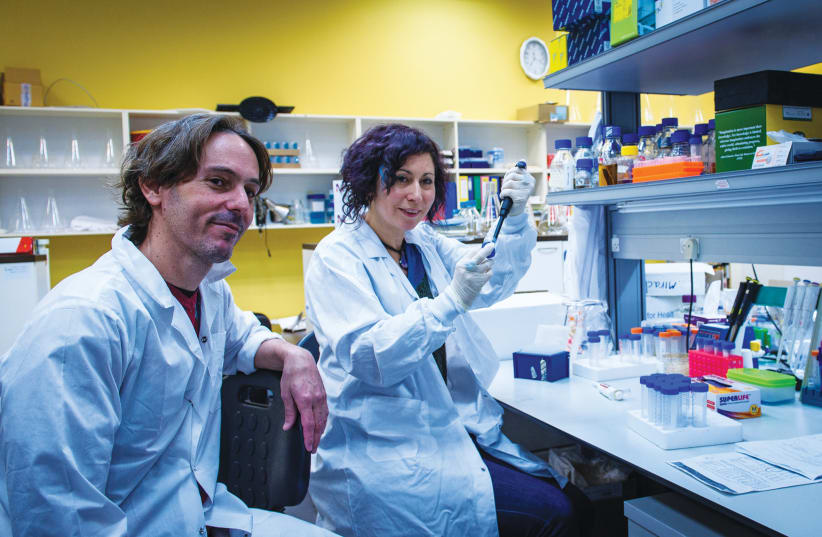In 2020, Israeli citizens left the country’s center for the Negev and the Galil at double the rate of previous years. The pandemic brought about long-lasting changes to company culture, no longer requiring full-time in-office work, and young families no longer feel compelled to stay in the expensive urban center.
At the same time, Israel’s northern tech scene has grown tremendously. With large industrial areas in Haifa and Yokne’am, and the emergence of new agricultural and medical technology innovations, northern Israel is ripe to become the country’s new technology hub. This, coupled with the migration of new talent, leaves start-ups with a unique opportunity to set down their roots in the North.
Emerging northern tech hub
Israel’s North is already home to bustling tech centers. Haifa’s industrial area is considered one of Israel’s largest tech hubs, where giants such as Intel, Elbit, NVIDIA and Microsoft all employ thousands of employees. At the core of this area is Haifa’s Technion-Israel Institute of Technology, one of the largest centers of applied research in the world. This technology institution serves as a solid foundation to breed tech innovation and amazing talent in the North. Yokne’am’s industrial park is also a growing center, pegged “the Silicon Valley of the North,” with Mellanox and Marvell tech offices, among many others.
But the North is also home to unique technology opportunities beyond these existing tech centers. Israel has asserted itself as a global leader in agritech, with agrifood innovations receiving $267.9M in investments in 2020 alone. While Israel’s geography is not very conducive to agriculture, the North is leading the charge as an ideal setting for the acceleration in water, agriculture, and sustainability technology. One northern bio-agtech company, Kaiima, develops innovative platforms that advance and improve plant productivity for large-scale, modern agricultural systems. Established in 2007, Kaiima raised a total of $133 million, providing just one example of the massive opportunities start-ups have in the North.
The northern city of Kiryat Shmona is also set to become a foodtech ecosystem, with plans to build a foodtech campus, an institution for research and a micro-industry complex for early-stage start-ups. With support from the government, this area has the potential to become home to many future start-ups and to also encourage more talent to move to the North.
An additional field that is taking off in the North is medtech. Haifa’s Rambam Health Care Campus is a world-class teaching hospital that serves as a hotbed for medical research and medtech acceleration in the North. Specifically, Rambam MedTech is the technology transfer company for the medical center and serves as the industrial liaison to bring medical innovations to market. Israel boasts over 1,000 medtech companies, with more than 100 new companies launching every year, and medical start-ups based in the North have the unique advantage of utilizing Rambam’s research support.
Lowering costs
With soaring costs in Tel-Aviv and its neighboring cities, start-ups can take advantage of the lower price of setting up shop in a northern tech center. Every aspect of building a business is cheaper in the North; from labor, to rent and supplies. Starting a company in the North is far more cost-efficient. In fact, renting offices in Haifa could cost more than 50% less than in Tel Aviv. That price contrast is especially crucial when companies are just in their beginning stages.
Additionally, with more tech talent making its way to the North and less hiring competition than in the Start-Up Nation’s top city, companies also have greater employment opportunities. The competition for employment is fierce in Tel Aviv, with companies spending millions just on hiring, while the North provides a new pool of talent with fewer companies at play.
Diversity breeds innovation
In Israel’s tech sector, Arabs, women and ultra-Orthodox workers are known to be severely underrepresented. Start-ups in the North have the opportunity to hire from a far more diverse pool of candidates than is available in Israel’s homogeneous center, which produces a much stronger team of employees. In fact, research shows companies that prioritize diversity enjoy a 60% improvement in decision-making abilities. The larger pool of perspectives leads to more creative solutions, which drives innovation and increases profits.
As Israel begins to take on more tech collaborations with the United Arab Emirates – and perhaps other Arab Gulf countries soon – having more Arab-speaking employees can be a huge advantage to tech companies interested in such partnerships.
Israel’s center has already proven itself to be the nation’s start-up capital, but it can also pose serious disadvantages to early-stage start-ups and small companies. High costs and fierce competition for talent make it even more difficult for start-ups to survive. While the country’s tech ecosystem continues changing, start-ups should look to the huge opportunities available to them in the nortH. Not only does it provide lower costs and a more diverse talent pool, but the North is proving to be home to the hottest fields in tech innovation, including agrifood tech and medtech, and has world-renowned research centers as a foundation for companies. All that is left is for start-ups to sow their seeds in the North, and the already burgeoning tech field is sure to bloom.
The writer is the CEO of Road2, an ecosystem for entrepreneurs, industry leaders and investors that develops start-ups into inspiring businesses.
